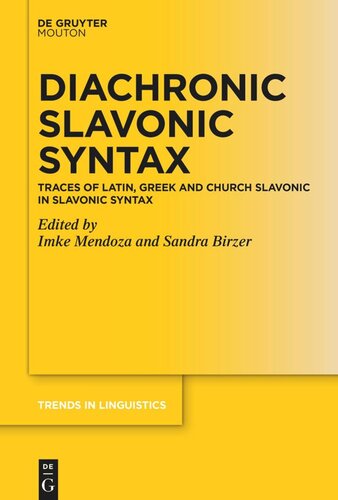

Most ebook files are in PDF format, so you can easily read them using various software such as Foxit Reader or directly on the Google Chrome browser.
Some ebook files are released by publishers in other formats such as .awz, .mobi, .epub, .fb2, etc. You may need to install specific software to read these formats on mobile/PC, such as Calibre.
Please read the tutorial at this link: https://ebookbell.com/faq
We offer FREE conversion to the popular formats you request; however, this may take some time. Therefore, right after payment, please email us, and we will try to provide the service as quickly as possible.
For some exceptional file formats or broken links (if any), please refrain from opening any disputes. Instead, email us first, and we will try to assist within a maximum of 6 hours.
EbookBell Team

4.8
94 reviewsThe impact of the ecclesiastical languages Greek, Latin and Church Slavonic on the Slavic standard languages still lacks a systematic analysis in the theoretical framework of contact linguistics. Based on corpus data, this volume offers an account in the light of “literacy language contact”, i.e. contact between varieties that are used only in a written variant and only in formal registers. Latin was used as literary language in medieval Slavia Romana; Greek was the source language for Church Slavonic, which, in turn, was the literary language for many Slavonic speaking communities and thus had an enormous impact on the development of the modern Slavonic standard languages. The book offers in-depth analyses of the impact of Latin on pre-Standard Slavonic varieties, the influence of Greek on (Old) Church Slavonic and the role of Church Slavonic as a source language for Old and Modern Russian. The contributions discuss (morpho)syntactic phenomena such as non-finite clauses, relative clauses, word order, the use and function of case and tense forms. The volume addresses Slavists, General linguists and scholars of Classical Philology interested in language contact and syntactic issues.